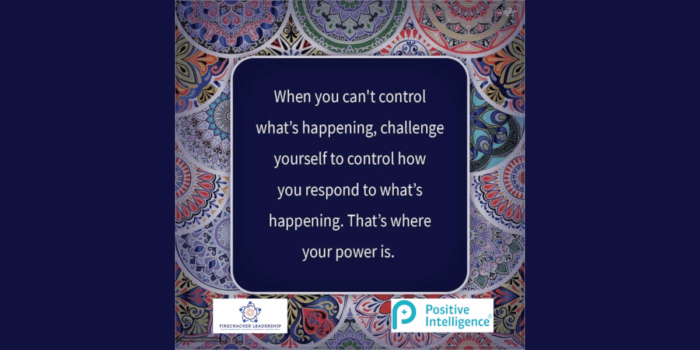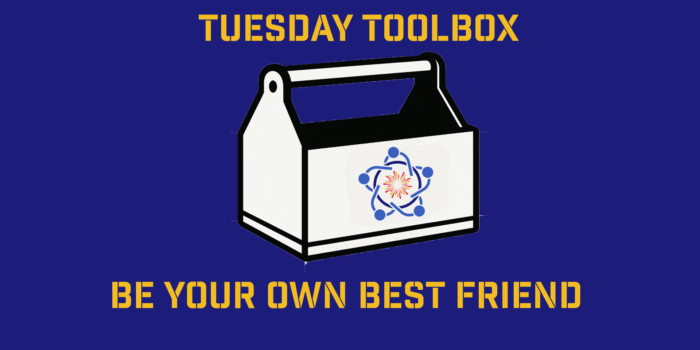Comparing ourselves to others is a slippery slope. Here’s how to stay on the positive side of it.
We all experience feelings that are difficult to handle. But between our emotion-phobic society and the debilitating uncertainty of modern times, we usually don’t know how to talk about them, much less handle them.
Well, that’s where the online community of Liz Fosslien and Mollie West Duffy — the duo behind the @lizandmollie Instagram account — comes in. They, like so many creators, have built a place where people can gather to laugh and cry about things like productivity guilt, anxiety and Zoom fatigue. Below, Fosslien and Duffy offer tools to help you understand the feelings that arise when you compare yourself to other people and start to move forward from them.
Left unchecked, comparison can make you miserable. Seeing people be better at something than you are can feel like a vicious uprooting. But with the right tools, you can use your envy to uncover what you value.
Here’s how to take your envy, decode it and turn it into positive action:
1. Listen to your strongest triggers
Twenty years ago, while waiting for coffee to brew, a young lawyer flipped through her law school’s alumni magazine. When she read about an alum who was a full-time writer, her stomach dropped like an elevator – but that’s what led Gretchen Rubin, now a New York Times bestselling author, to pursue a new career as an author.
That’s right – her career change didn’t happen because of a conversation with her boss or visits with a life coach. It happened because she felt desperately envious of someone else’s life. Comparison can teach you what you value when you see yourself envying someone doing something you want, even if you haven’t consciously allowed yourself to want it.
Self-awareness can help you turn your feelings into something useful, so the next time envy rears its head, ask yourself:
• What do they have that makes me feel less than?
• What void do I believe having it would fill?
• Do I really want what they have?
• If yes, how much, and is it worth taking action to try to get it for myself?
The more specific your answers, the better you’ll be able to redirect your emotion into actions and strategies.
2. Make sure your envy doesn’t become malicious
Comparison-induced envy can be a great motivator and guide. It can also make us bitter.
Psychologists distinguish between benign envy, when we admire someone and try to emulate them, and malicious envy, when we dislike the other person for having what we want. It’s the difference between “They have a penthouse apartment, and it’s cool how they got it” and “I hate that their home has panoramic views, and I want them to suffer.”
To be clear: Both are painful. Benign envy motivates us to work harder to improve, while malicious envy makes us nasty.
We often feel malicious envy when we perceive scarcity. But in many cases, another person’s ability to achieve something is evidence that it’s possible for us, too.
To shift your thinking from malicious to benign envy, try these phrases that we heard from reader Aya:
• “I’m inspired by _____. Maybe I can learn from them, or ask them to be my mentor.”
• “I haven’t done what they’ve done . . . yet.”
• “Every person is on their own journey. I’m grateful for mine.”
• “If my favorite role models stopped what they were doing, I wouldn’t be able to enjoy their incredible work.”
3. Pick a broader baseline
If you see a friend hitting a personal milestone, it’s easy to feel you’re far behind in life. But if you think of 10 or 20 of your acquaintances, chances are a bunch will be in the same boat as you – and might even be happily sailing along.
In an experiment, researchers asked people to assess their running abilities. They found that participants spontaneously compared themselves with the best runner they could think of and deemed themselves not so great. The researchers then prompted the participants to list the top 10 runners they knew personally. By reflecting on the seventh- or ninth-best runner they had rubbed shoulders with, people suddenly felt a lot better. Comparing themselves with a broader group diminished the enormous gulf between themselves and what they thought of as “good.”
Psychologists also find that broadening your perspective can be helpful when you experience what they call deprivation intolerance: when you don’t get what you want and that causes you to plunge into a pit of despair.
The next time you desperately covet what someone else has, swap out the question “Why don’t I have that?” with “Do I have enough?”
Chances are, you can survive without whatever it is you pine for, and not having it has no impact on your worth as a person.
4. Compare the nitty-gritty
A few years ago, Liz learned that a friend-of-a-friend had been promoted and would soon be leading a team of 200 people. Liz was overcome with envy. “Does my jealousy mean I should shift all my plans?” she wondered. “Have I been wrong about who I am and what I want?”
But the next morning, Liz awoke with the certainty that she didn’t want to trade places with her acquaintance. She wasn’t actually longing for the day-to-day that came with being a manager of managers; she just wanted the prestige and social validation of announcing a big, exciting accomplishment.
Thinking through a day-in-the-life helped Liz realize that she didn’t need to shift her entire career but instead should keep going in her current path and look for more opportunities to become more visible.
Here’s a list of questions that can help you make better comparisons:
• What would a day-in-the-life look like?
• What specific pieces of that life do I want?
• What specific pieces of that life do I not want?
• What experience does this person have?
• Is this comparison based on some imagined/ better version of myself or other people’s/ society’s expectation of me?
• Am I willing to give up the good things in my current life to have that?
5. Compare present you against past you
You may not always be exactly where you want to be, but chances are you’re not where you used to be, either. Pausing to take stock of your accomplishments – and the skills you’ve developed as a result – can help you feel proud of your progress and untangle yourself from malicious envy.
Though reader Eliza has always loved mountains, she avoided running or hiking because her asthma left her at a disadvantage compared with her peers. In her late twenties, she finally decided to go for it, even if that meant going for it at a slower pace.
“I will never be able to hike as fast as others,” she told us. “I’ll always be slower because of my low lung capacity. The only person I can and should compare myself to is me.” Eliza’s persistence and new attitude paid off: Just before her 30th birthday, she completed a five-day hike.
A simple way to make this type of self-comparison a habit is to take a few minutes at the end of each month to reflect on these prompts:
• What have I learned over the past few weeks?
• What was difficult, and how would I approach it differently given what I know now?
• What progress did I make?
Yes, comparing yourself with others is unavoidable, but by applying some of this advice, you can learn to use it to your advantage. Remember that you only see the tip of the iceberg, especially on social media – someone whose life seems perfect on Instagram may be dealing with struggles that you’re completely unaware of. One last good rule of thumb is to balance comparing up (looking at people who have more than you) with comparing down (looking at those who are worse off than you).
Adapted from the new book Big Feelings: How to Be Okay When Things Are Not Okay by Liz Fosslien and Mollie West Duffy, in agreement with Portfolio, an imprint of Penguin Publishing Group, a division of Penguin Random House LLC. Copyright © Liz Fosslien and Mollie West Duffy, 2022.



